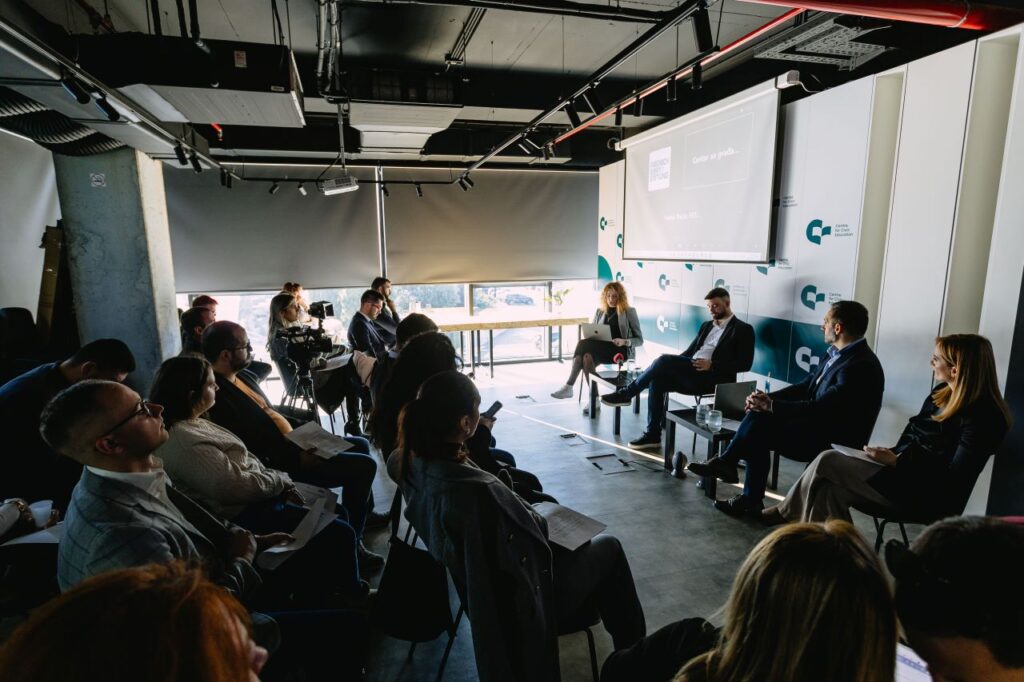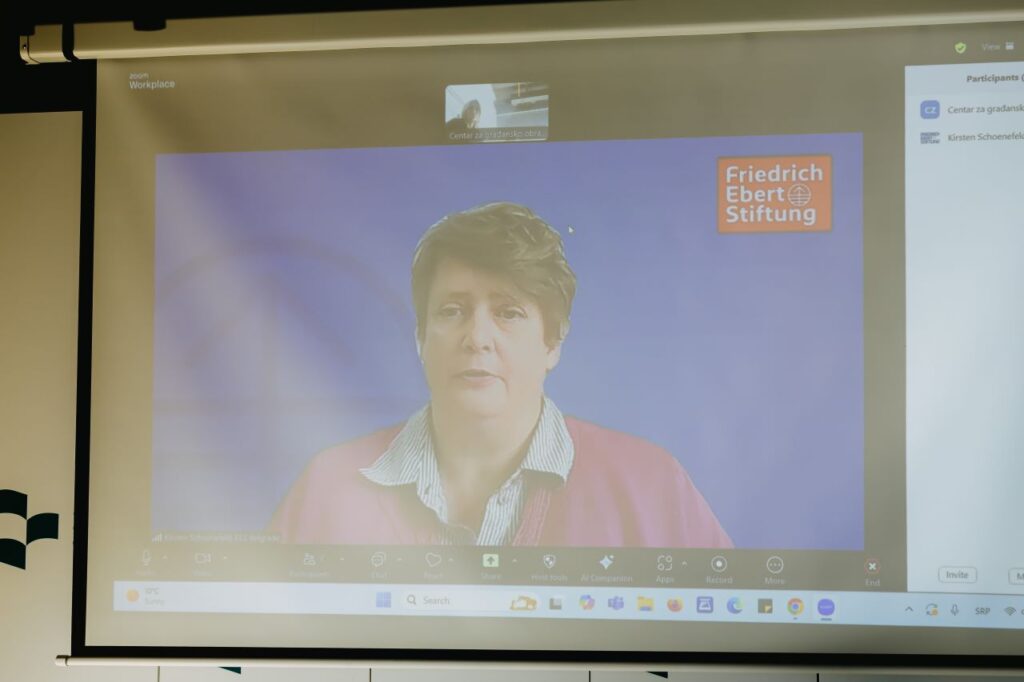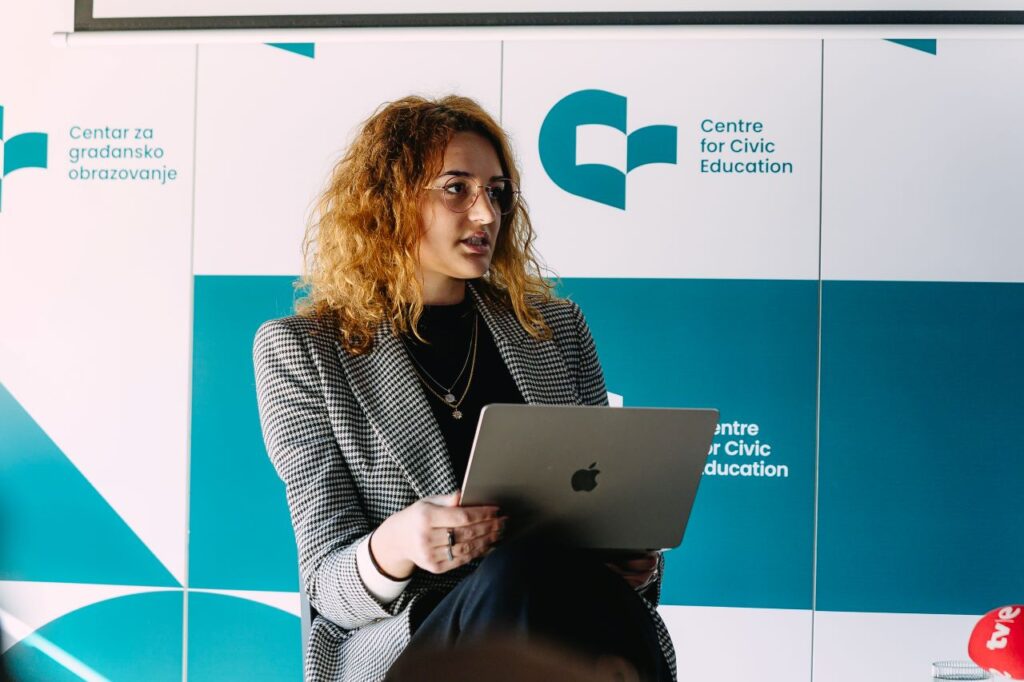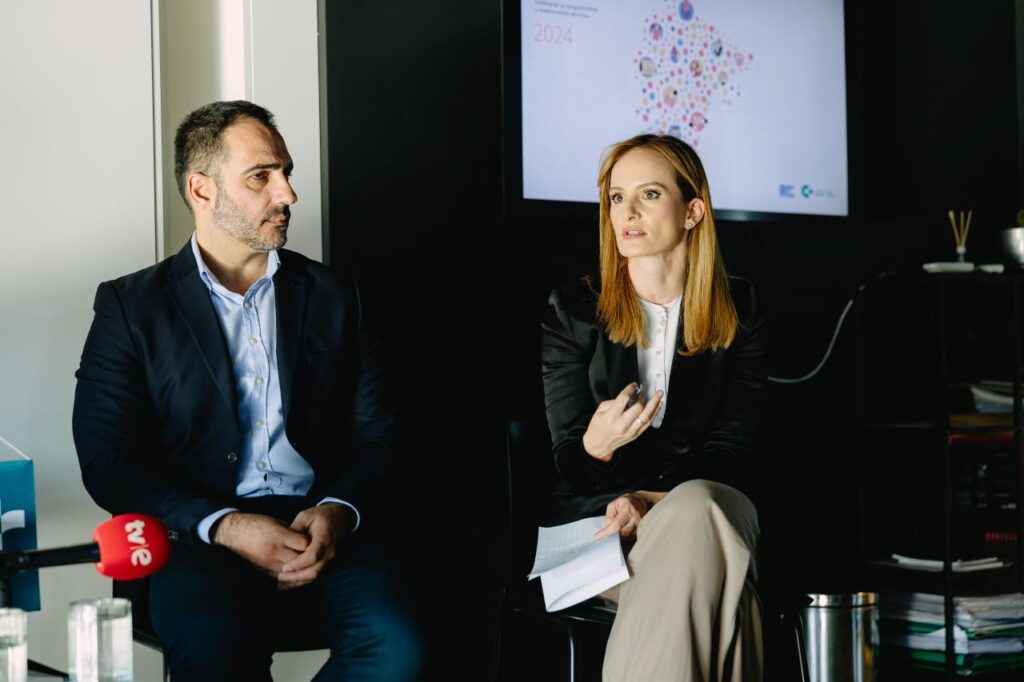“Youth in Montenegro face numerous challenges, including limited employment opportunities, job market insecurity, and a lack of professional development prospects. At the same time, their role in society is often underrecognized, with findings indicating that, in the current context, they are increasingly turning to religion. It is crucial to develop strategies and policies based on empirical data that empower youth, provide quality education, and grant access to opportunities they deserve so they can actively contribute to Montenegro’s development,” it was stated during the presentation of the study on youth in Montenegro, “Navigating uncertainty amidst traditional constraints,” organized today by the Centre for Civic Education (CCE) and the Friedrich Ebert Stiftung (FES) with the aim of encouraging an informed debate on the views of young people about politics and democracy.
The study is based on research that included young people aged 14 to 29, addressing a wide range of topics – from education and employment to political engagement, social inequality, general views on society, and young people’s future in Montenegro, as well as the challenges of transitioning into adulthood. The study is part of a broader FES programme that includes comprehensive research conducted in 12 countries: Albania, Bosnia and Herzegovina, Bulgaria, Croatia, Kosovo, North Macedonia, Montenegro, Romania, Serbia, Slovenia, Greece, and Turkey, offering valuable insights into how young people perceive societal changes and envision their personal futures.
“I am pleased that we can share some of the key findings, which I hope will be instructive in shaping future strategies to address the needs of young people in Montenegro,” said Kirsten Schönefeld, Director of the FES Regional Office for Serbia and Montenegro, during the opening remarks. She highlighted data on the quality of education, corruption in the education system, employment opportunities for youth, and their relationship with political participation and certain values. “The deep impact of economic and political instability on the lives of young people in these 12 countries is particularly striking, alongside dissatisfaction with education and limited job opportunities. In Montenegro, young people often face job insecurity and limited opportunities, further exacerbated by structural issues like corruption and social inequality,” she noted, also emphasizing as positive the enthusiasm of young people in EU candidate countries for joining the EU.
“It is often assumed that young people, by definition, are bearers of innovation, creativity, and energy that can transform communities and society as a whole. However, a significant portion of young people, due to the waves of retraditionalization and clericalization we are exposed to, is beginning to rely on conservative norms and religion. The findings of the study underscore the need to balance traditional values with openness to new opportunities and ideas that foster societal progress, while supporting the development of progressive ideas and their advocates among the youth,” said Daliborka Uljarević, Executive Director of CCE, during the event’s opening, emphasizing the importance of the research in providing empirical insights into how young people see the society they live in and their future in Montenegro.
Details of the study were presented by author Valentina Ostojić, who noted that the findings, in general, suggest that young people in Montenegro are concerned about socio-economic factors like employment, education, and career opportunities, but are also highly conservative.
“For example, 72.4% of young people cite family approval and 56.4% cite religious beliefs as significant factors in choosing a partner. Additionally, half of the respondents list education, 40% ethnicity, and a quarter consider virginity as an important factor, further demonstrating the high level of conservatism among youth in Montenegro,” she explained.
Ostojić also pointed out that 71.1% of young people support Montenegro’s EU accession, while 17.5% oppose it, and 10% have no stance on the issue, adding that this support for the EU does not necessarily reflect an embrace of its values. “While a dominant majority supports EU membership, there is also a high level of intolerance and conservatism towards minorities and ‘the other,’ which contradicts EU policies. In this context, it is clear that young people mainly recognize the socio-economic advantages of the EU,” said Ostojić.
“Young people identify problems in the educational system – almost two-fifths are dissatisfied with the quality of education and concerned about corruption in education – 55% believe that grades can sometimes be ‘bought’ in Montenegro. Among respondents with higher education, the belief in the presence of corruption in education is more pronounced,” said Valentina Ostojić.
Dissatisfaction with opportunities in the country is also expressed through the desire to emigrate. “The data that 45.8% of young people have a moderate or strong desire to leave Montenegro is worrying, with the highest desire being among students of master’s and doctoral studies. The reasons are mostly related to living standards and career opportunities, and less frequently to educational and cultural opportunities. Nevertheless, 50.9% look positively at the future of Montenegro,” she clarified.
Almost half of young people are not interested in politics, 37.5% believe that religious organizations hold too much power in society, while 58.7% fully or mostly trust their religious organization.
An overwhelming majority – over 80% – believe that the wars of the 1990s still significantly affect the situation and prospects of young people in the countries of the former Yugoslavia. To ensure lasting peace in the country, 36% of young people believe that all sides must take responsibility, 20% think economic prosperity can resolve it, 17.4% argue for strengthening the education system in dealing with the past, and 10.8% believe EU membership will solve the issue.
Expert comments were provided by Dr. Nikoleta Đukanović, Professor of Humanities at the University of Donja Gorica, and Petar Đukanović, Programme Director at CCE.
“Unfortunately, the findings of the research are disheartening, but not surprising, as they point to deep problems in society, for which the responsible institutions must take responsibility and actively work to improve it,” said Nikoleta Đukanović. “Particularly concerning is the fact that 37% of young people are dissatisfied with the education system, indicating low confidence in the quality and efficiency of education. How can young people become competitive and successful when the fundamental values of education and work are undermined? The best young people are leaving Montenegro, while political parties often misuse their positions by recruiting mediocre, or even poor students, into significant state roles. Such a system creates additional barriers to progress, and it is clear that without serious reforms, nothing will improve,” she added.
Petar Đukanović also commented on the educational system: “If we fail to motivate young people in the right way, we will face serious problems in sustaining the democratic system. Education authorities are not sufficiently open to hear the messages young people are sending through such research. Critical thinking opens the doors to new values and steps forward. Unfortunately, we have failed in the field of education and commitment to young people Decision-makers must create policies to improve the education system and enable young people to develop and contribute to the society they are part of,” he concluded, highlighting the stable number of young people wanting to leave Montenegro as an issue that no one in the system is addressing.
The event gathered around 30 representatives from the Government, civil sector, political parties, academia, and the media, who contributed to an open and constructive discussion.
Itana Gogić, programme assistant





